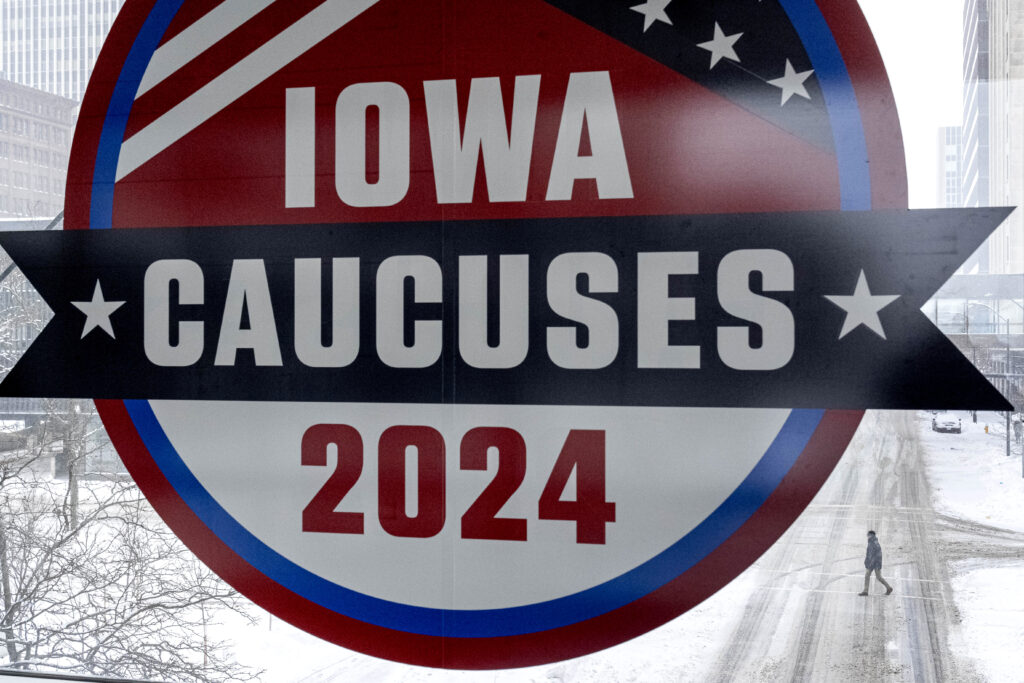
The Iowa caucuses are the first deciding contest of the 2024 presidential primary, but unlike a traditional primary, the caucuses are a different form of choosing a presidential nominee.
As former President Donald Trump, former South Carolina Gov. Nikki Haley, and Gov. Ron DeSantis (R-FL) work to get the support of Iowans, here is how caucusgoers will express their preference for who should be the GOP presidential nominee in November.
Who can participate in the Republican caucus?
To participate in the GOP caucus in the Hawkeye State, a person must be 18 years old by Election Day in November and a registered Republican voter in the state. If a person is not a registered Republican, he or she may switch party affiliation to the GOP at the caucus precinct.
Those looking to participate in the process must go to their caucus location for the voter’s precinct, which can be found on the Iowa secretary of state’s website. The caucus begins at 7 p.m. CST, but voters are told to arrive early to check in.
Those who are registered Republicans must bring a valid state ID, passport, military ID, veteran ID, or tribal ID card. Those looking to register to vote as a Republican at the precinct must also bring a valid proof of address in addition to a valid form of ID.
Republicans looking to participate in the presidential nominating process in the Hawkeye State must do so in person, as there is no virtual or mail-in alternative to the in-person caucus.

How does caucus night work?
On Monday, Republicans assembled at the precinct will elect a chair and a secretary to oversee the event before supporters of each presidential candidate address the assembled caucusgoers. After the speeches conclude, the assembled people will vote by secret ballot for their preferred presidential candidate.
After all of the caucusgoers have voted, their ballots are counted and reported to the state Republican Party. The results are typically public for each precinct on the night of the caucus.
How are delegates allocated?
There are 40 delegates at stake in Iowa, and they will be allocated proportionately to how a Republican candidate finishes in the statewide vote total. The 40 delegates make up just over 1% of the 2,429 delegates who will nominate the party’s presidential nominee at the Republican National Convention in Milwaukee in July.
CLICK HERE TO READ MORE FROM THE WASHINGTON EXAMINER
What are the Democrats doing?
The Democrats are holding in-person caucuses on Monday, but the events will simply be for party business rather than selecting a presidential nominee. Iowa Democrats will express their preference for their presidential nominee via a mail-in contest, open to voters from now until March. Democrats in the state may submit their presidential preference card until March 5, when the results will be announced.
The new process for Democrats comes after the Democratic National Committee voted to move South Carolina to the front of its presidential nominating contest. The present system in Iowa is a compromise between the state party and the national party.







